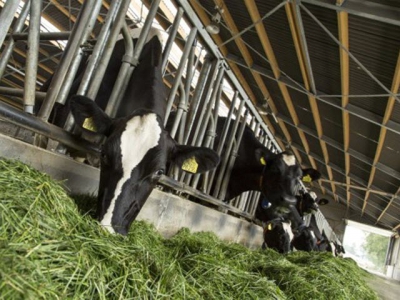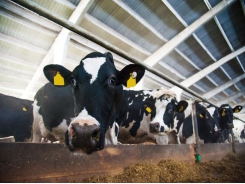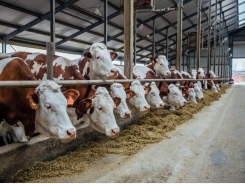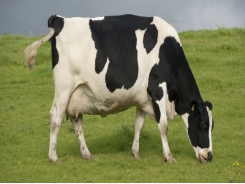Cattle, poultry in-feed drug suspected in horse deaths

The FDA is investigating a series of horse deaths reportedly linked to the presence of a cattle and poultry drug in contaminated feed.
The US Food and Drug Administration (FDA) announced the investigation Friday [July 27], following the death of six horses that ate the same batch of feed.
The FDA has been examining a batch of horse feed generated by Minnesota-based Gilman Co-op Creamery that reportedly contained monensin, the agency said. The animal drug is highly toxic for horses.
“The FDA is issuing this notice to make feed manufacturers and horse owners aware that monensin in horse feed continues to be a concern,” the agency said.
The batch of feed manufactured was a special order and was not distributed to other farms, reported the agency.
“Monensin is an ionophore animal drug approved for use in cattle and poultry feed to increase feed efficiency and prevent coccidial infections,” the agency said. “Monensin is highly toxic and potentially lethal to horses, even at relatively low levels.”
The FDA said it is continuing to investigate the case and is expecting to take action as needed to address animal health.
The feed company did not respond to requests for comment by press time.
Tracking feed concerns
A Minnesota-based horse farm started using a special-ordered feed from Gilman Co-op on June 9, the FDA said. One horse at the facility was unable to stand that evening and two additional horses displayed similar symptoms two days later. Three more horses died during the next month.
Monensin toxicity in horses is rarely treatable and most horses die or are euthanized, the FDA said. Horses that eat monensin also may experience permanent damage to the heart or other muscles.
“When inspecting the firm, the FDA found that on the date the batch of horse feed in question was manufactured, Gilman Co-Op Creamery first mixed cattle feed containing monensin, and then did not perform adequate cleanout to remove the monensin from its equipment before mixing the horse feed,” the agency alleged.
Federal regulations require that feed production facilities set and follow specific cleanout processes on equipment used to generate or move medicated feeds, said the FDA. The goal of those requirements is to prevent the unsafe cross-contamination of medicated and non-medicated feeds.
“Feed manufacturers making medicated feeds need to remain vigilant about taking appropriate steps to eliminate unsafe carryover of medications into feed intended for different species,” the agency said. Two guidance documents covering how to meet the FDA’s requirements for animal feed manufacturing are 235 – current good manufacturing practice requirements for food for animals and 72 – GMPs for medicated feed manufacturers not required to register and be licensed with FDA.
Animal owners and veterinarians are encouraged to report complaints about cross-contamination in feed to the FDA, the agency added.
Past incidents with monensin contamination
In the past few years there have been several reported incidents of suspected monensin contamination in feed and cross-contamination in horse feed.
In March, members of a barn in New York sued its feed provider, Reisdorf Bros., alleging cross-contamination of monensin in horse feed.
A lawsuit was brought against ADM in July 2016 alleging levels of monensin in horse feed made at a facility that also produced cattle feed, according to court documents. However, the company also recalled a lot of cattle feed in June 2017 that possessed high levels of the drug.
Western Milling faced a fine and facility upgrades in May 2017 as part of a settlement with the California Department of Food and Agriculture. The company was accused of improperly mixing or making feed that resulted in the death of horses and calves.
In October 2017, Burkmann Industries was told to improve practices after an FDA inspection. The facility review came after at least 23 cattle died from consuming a feed, which was reported to have high levels of monensin.
Additionally, in March, the FDA gave Canadian company Meunerie Sawyerville a five-year ban on importing feed into the US after an incident that started with an imported load of cattle feed that had overly high levels of the drug.
Related news
Tools

Phối trộn thức ăn chăn nuôi

Pha dung dịch thủy canh

Định mức cho tôm ăn

Phối trộn phân bón NPK

Xác định tỷ lệ tôm sống

Chuyển đổi đơn vị phân bón

Xác định công suất sục khí

Chuyển đổi đơn vị tôm

Tính diện tích nhà kính

Tính thể tích ao



 Lallemand offers tips to avoid fall slump in…
Lallemand offers tips to avoid fall slump in…  Newtrient cites progress on dairy manure management, nutrient…
Newtrient cites progress on dairy manure management, nutrient…